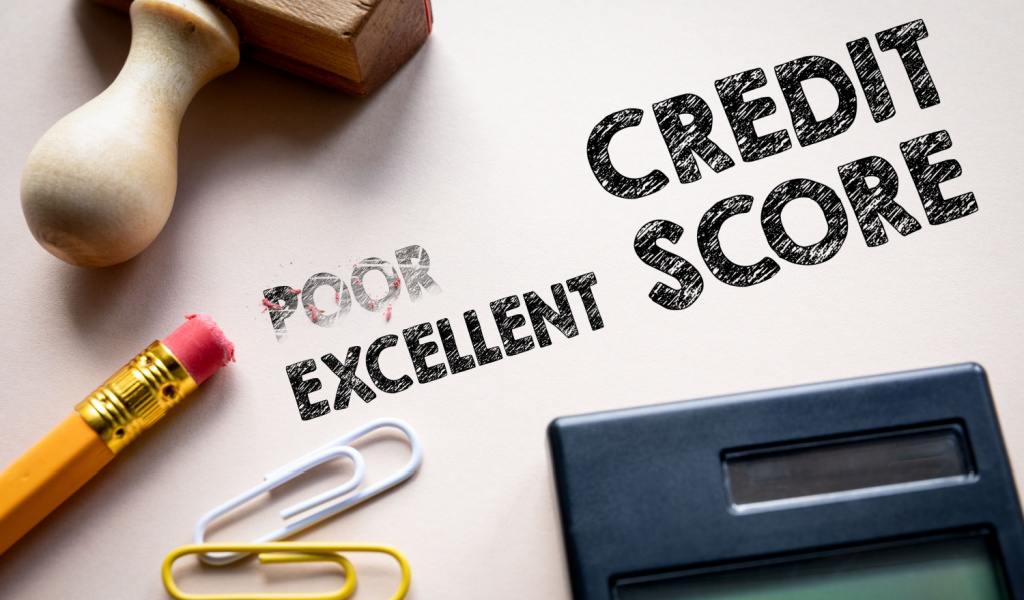Building a good credit score is of utmost importance for everyone, but it can sound complicated and complex when you are just stepping into real life. But it is essential that you figure it out, mainly when you apply for any line of credit, be it a loan, credit card, or something else. The sooner you learn the importance of having a credit or CIBIL score, the more financially secure your future will be – and it’s never too early to begin building good credit!

Rules To Follow Before Having a Line of Credit as a Student
The first thing to consider is your age. Although anybody under 21 can start using a credit line, obtaining a credit card will require a co-signer or proof of income. If you are making money from a job, you can apply and qualify independently. However, plenty of students lack this option. Your plan of action can change, given your age and whether or not a parent of yours or a legal guardian is planning on co-signing a credit card with you or adding you as an authorized user.
The following are a few practical guides to building a lifetime worth of outstanding credit. However, suit yourself, given what you believe is practical to follow.
Build a Good Credit History
The length of your credit history can partly influence your credit score. You can either get a credit card or obtain a loan to set up a line of credit and start building your credit history.
When building credit, college students should stay away from certain risks. For instance, neglecting a credit card payment could significantly lower your credit score. Moreover, carrying a big balance on your credit card could also adversely affect your credit score. Try to limit your credit card purchases to no more than 30% of your credit limit, and try to pay off your balance each month.
Be A Credit Card Authorized User
If you have an insufficient credit history and cannot get a credit card, try to be an authorized user, enabling you to use someone else’s credit. You can request a parent or legal guardian to add you to one of their credit cards as an authorized user. Authorized users get to enjoy a credit boost even if they are not charged a single payment. Nevertheless, not all credit cards enable authorized users to access the credit bureaus. Certain credit cards could permit you to add authorized users, yet they will not boost your credit score.
You can request somebody to co-sign a credit card as a second option. However, if you fail to make a payment, their credit score could be at risk.
Get a Student Credit Card
Companies that offer credit cards understand that college students tend to have little or no credit. Credit card companies offer student credit cards for those with no proper credit history. Students who are not eligible for a standard credit card can frequently open a student credit card account.
These credit cards assist college students in growing credit, as they frequently have smaller spending limits and higher interest rates. Furthermore, you can search for a better card once your credit score improves.
Apply For a Secured Credit Card
College students can easily use a secured credit card to build credit with limited risk. In a secured credit card, you transfer money to the company that issued your credit card to add to your account instead of getting a line of credit. You are limited to spending only the money already deposited into your card, similar to a debit card.
Generally, students with no credit history are eligible for a secured card. Students who fear overspending might find this to be a great first credit card, as secured credit cards only permit you to charge what you put down.

Pay Your Bills Promptly
If you possess a credit card, ensure to pay your bills promptly. Making regular and timely payments will significantly increase your credit score. This is because the credit bureaus closely monitor your payment history. While a record of timely payments can improve your credit score, late payments can lower your credit score. Thus, it is advisable to pay all of your debts every month. You can avoid accumulating interest and debt by making monthly payments on your credit card.
Refrain From Excess Purchases
As a credit card is an important financial tool, it is advisable to use it wisely. Think about making regular, small purchases instead of big ones. This will help you to maintain a low credit usage rate while building your credit history.
Avoid Using Several Credit Cards at Once
You may be tempted to get another credit card once your first one is approved. However, avoid getting several credit cards at the same time, as it can negatively affect your credit history. Applying for multiple credit cards simultaneously can cause significant concerns to the lender or the credit card company. Indeed, the more credit cards you own, the more debt you will have to pay. Paying down a significant amount of debt as a student with little to no income is extremely difficult. Moreover, each time you apply for a credit card, the multiple hard inquiries decrease your credit score by a few points.
Never Co-Sign for A Friend
You may be tempted to help a friend or family member by co-signing a loan or credit card. However, when you do so, you become liable to repay that account’s debt if your co-signer fails to keep up their end of the deal. Not only that, but your credit score will also be impacted if they make any loan repayment delays. Therefore, avoiding situations that could result in poor credit scores is best. Moreover, this could also lead to the rejection of your loan applications.
Monitor Your Credit Account
Monitoring your credit account regularly is the most effective way of checking your due payments, purchases, and other additional activities. Notifications can be set for every single time your credit card is swiped. Furthermore, this could help you keep track of your spending and account balance, along with detecting fraud. Ensure to report any unusual activities immediately to the credit card company. If you fail to report such activities, your account can end up maxed out, adversely affecting your credit report and overall score.
Bottom Line
Conclusively, the sooner you build your credit, the longer your credit history will remain and help you maintain a favorable credit score. Paying back your school debts or adding yourself as an authorized user on a family member’s credit card are the two methods by which you can build your credit score.
If you have a job that makes you financially independent, you can apply for your own secured credit card to get started. Be mindful when using a credit card, for example, charging only what you can afford and making timely and total payments of your monthly balance.



